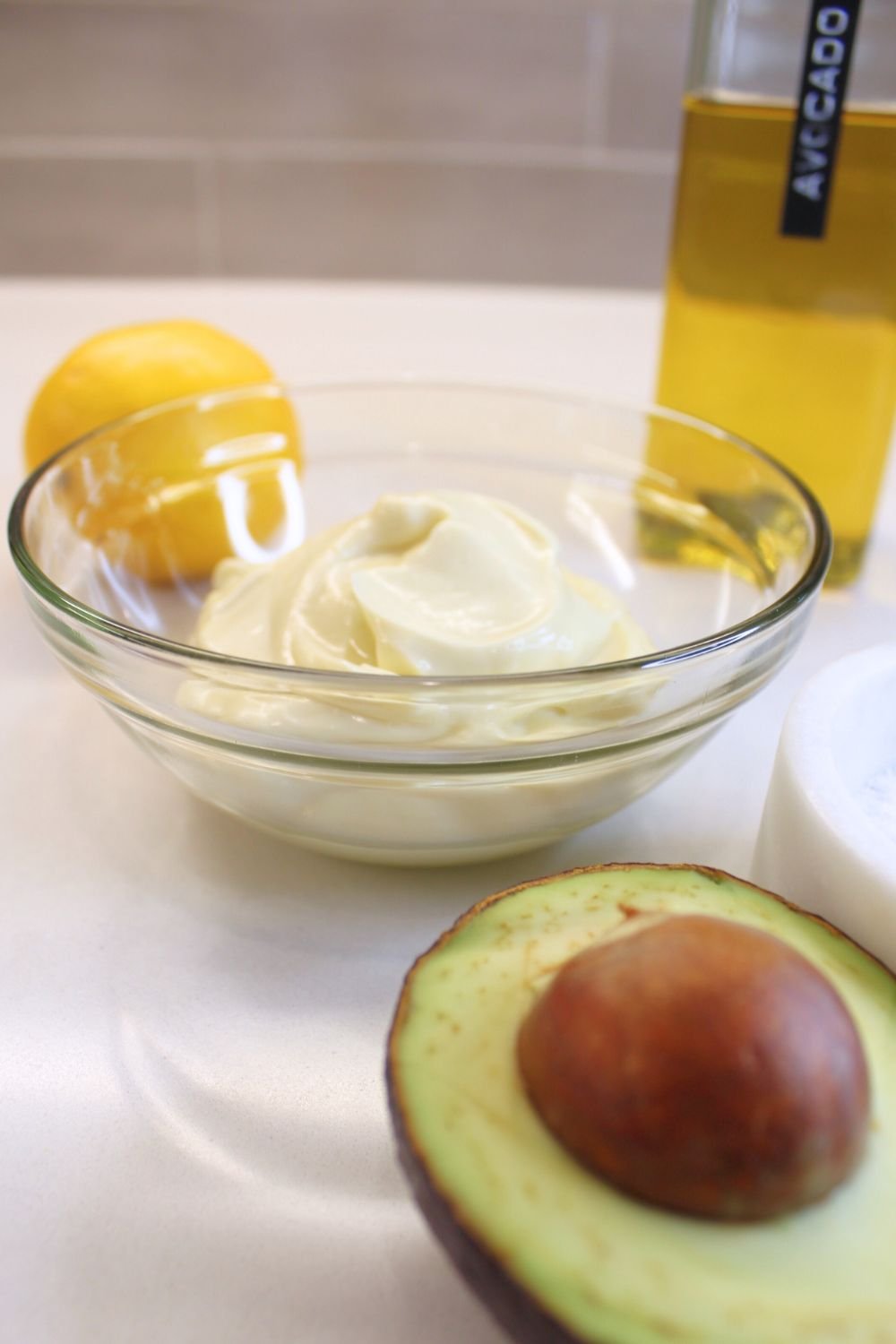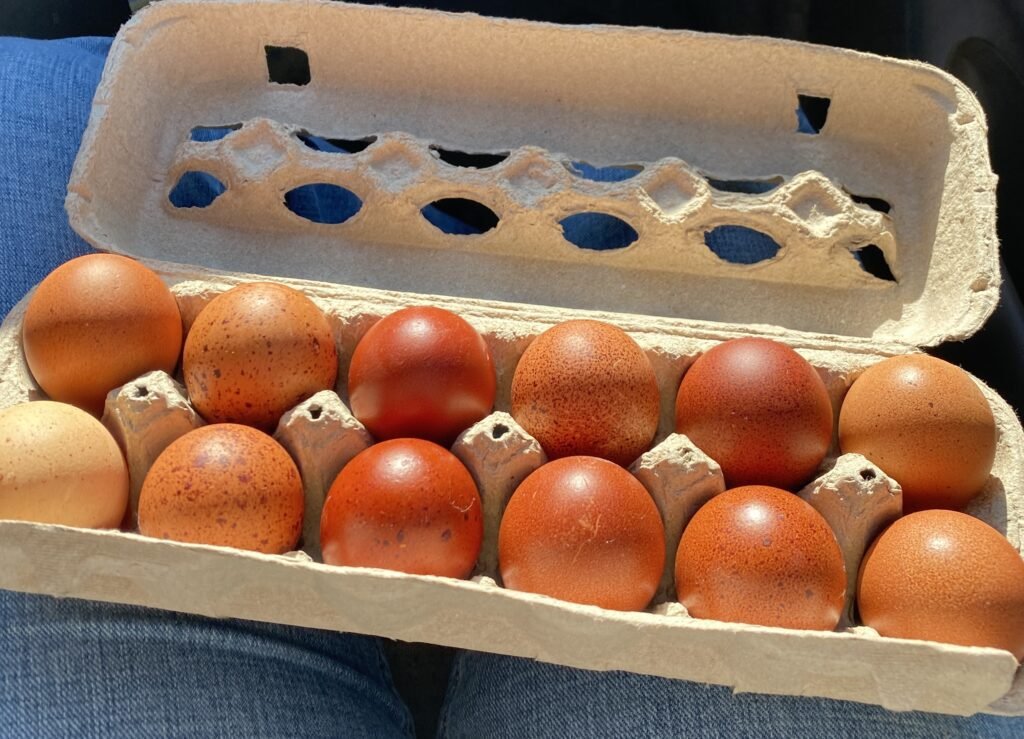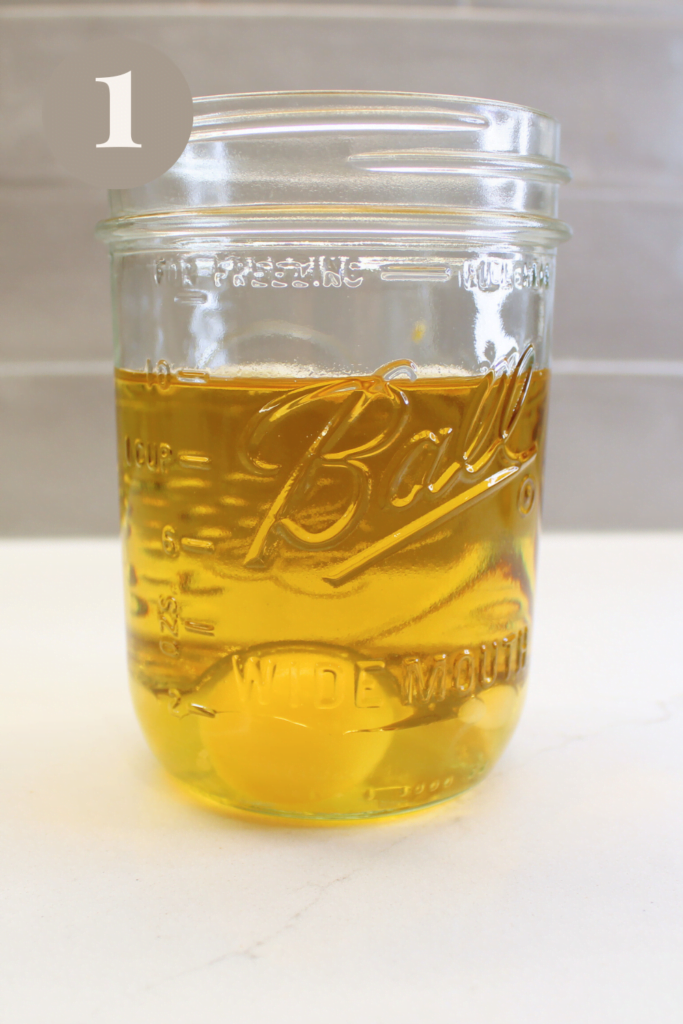AVOCADO OIL MAYO
August 28, 2024
This is an easy avocado oil mayonnaise recipe you can put together in minutes. Compared to most store bought mayos this recipe is made with good clean ingredients. It has a good fluffy and creamy texture, and is great on sandwiches.

Avocado Oil Mayo Ingredients
Egg: The egg acts as an emulsifier that allows the oil to mix with the water to create a creamy texture.
Lemon Juice: The acid helps with the emulsification process. The lemon juice can be substituted for apple cider or white vinegar.
Dijon Mustard: The mustard is present to add a bit of flavor but also to keep the mayonnaise stable. The dijon can be substituted for yellow mustard.
Sea Salt: In this recipe salt acts as both a preservative and flavor enhancer.
Avocado Oil: The type of oil used can affect the flavor of the final product. The oil also gives the mayo a smooth texture. Oil can be substituted for olive oil.
Recipe Notes
Type of Oil
This recipe is for avocado oil mayo but a good substitute could be a good quality olive oil. You would be surprised but many oils including olive and avocado still contain seed oils in the blend.
This is even if the bottle states 100% avocado oil, which was upsetting to me. A good way to tell is by color and smell. The color of the oil can be light yellow to light green. The oil should have mild to no flavor and smell.
Also, a good way of telling its high quality is the bottle its in, it should be amber or green not clear or white. A good quality oil will go rancid without the darker color of the glass blocking the UV light. Here I have linked my favorite avocado oil, if you want to skip the testing.
Type of Eggs
When using raw egg in a recipe, it is best to use in-shell pasteurized eggs. The worry with using raw eggs is the harmful bacteria that could be present.
Pasteurization is the process of sterilization using heat treatment. Just like you would be wary eating raw meat I would also make sure your eggs are high quality to eat raw.
For this recipe you can also make it with only the egg yolk. Doing this will provide a richer taste and thicker consistency. The whites give the mayo a fluffy consistency.
How to Blend
The egg yolk is the important ingredient that will make sure your mayo comes out white and creamy. This is because of a process called emulsification. The oil and the egg yolk together, at a high speed, create a permanent emulsification. This is why the mayo stays creamy and together.
Because the egg yolk is so important to get that classic mayonnaise color and texture, the egg yolk cannot break before blending. So, be careful when adding to the mixture.
Getting the ingrediants to come together perfectly can be a tricky process. While blending make sure you dont move the stick blender from over the yolk till the emulsification process has happened. If you do not follow the instructions carefully it is hard to revive the mixture. Read more below if this happened to you.
Pasteurized Eggs
Eggs from the store typically aren’t pasteurized, which means they can carry a risk of Salmonella and other harmful bacteria, especially when consumed raw. Pasteurized eggs are gently heated to a safe temperature that kills harmful bacteria without cooking the egg, making them a safer choice for raw consumption.
Raw egg-based dishes like homemade mayonnaise, hollandaise sauce, or eggnog require pasteurized eggs to reduce the risk of foodborne illness. Using pasteurized eggs ensures you can enjoy these recipes more safely, as they’ve been treated to minimize bacterial contamination.
How to Pasteurize Eggs?
Fill a saucepan with enough water to fully submerge the eggs, ensuring there’s about an extra inch of water above them. Remove the eggs and place the pan filled with water on the stove and turn up heat to medium until it reaches a temperature of about 140°F . Once the water is at the right temperature, carefully place the eggs into the pan. Keep the water between 140°F and 145°F for about 3 to 5 minutes. Make sure that the heat doesn’t go higher and you dont leave the eggs in longer, if you do the eggs will no longer be raw. After pasteurizing they are ready to use, just remove the eggs and place them in ice cold water for a minute first.

Broken Mayonnaise
The blending process can be very satisfying when it works and very upsetting when it doesn’t. Broken mayonnaise is when it comes out super liquid and all of the ingredients haven’t combined correctly, a broken texture. Fear not I have a solution if your mayonnaise doesn’t turn out quite like you hoped.
If it doesn’t come together or if it is too runny, it might be due to cold ingredients or incorrect measuring. Also, some blenders can’t handle all the oil at once and needs to be added it in batches to the emulsified egg.
How to Fix it?
To fix the mixture, in a separate container add an egg and blend. Then slowly, while still blending, add the broken mayonnaise mixture to the egg container in batches. You should start to see the mayonnaise come together.




Explore some of my favorite recommended products to support your health journey (displayed on this page as affiliate links), and remember to always consult a healthcare professional before making any changes to your diet or lifestyle—full medical disclaimer here.


Avocado Oil Mayo
Mikayla AthenaEQUITMENT
- Wide Mouth Mason Jar or similar container
INGREDIENTS
- 1 cup avocado oil
- 2 eggs room temperature
- 1/2 tsp salt
- 1 tsp Dijon mustard
- 1 tbsp lemon juice
DIRECTIONS
- Put avocado oil in a wide mouth pint jar (just big enough for immersion blender) then place in the remaining ingredients.
- Place immersion blender at the bottom of the glass firmly with the blade covering the yolk. Start blending and hold there until mayo begins to emulsify and thicken (you will start seeing white at the bottom, 10 to 15 seconds).
- Once it starts to emulsify, slowly move the blade up and down in the container till fully combined and all the same consistency.
- Stir to make sure it is all mixed together and store in the fridge for up to two weeks. Enjoy!
NOTES
- This recipe is not specifically meant for celiac individuals. Instead this is meant for gluten sensitive individuals. Celiac individuals need to take extra precautions. This recipe is not meant for vegan individuals, instead for dairy sensitive individuals.
